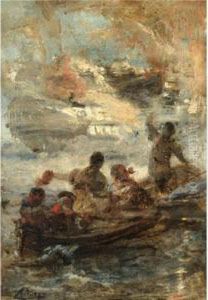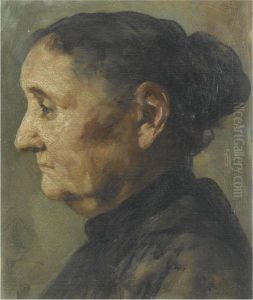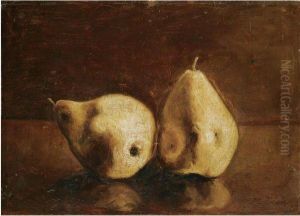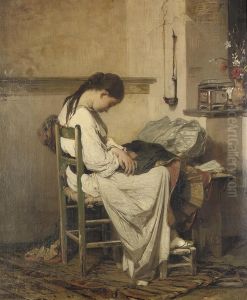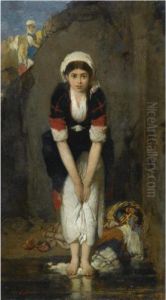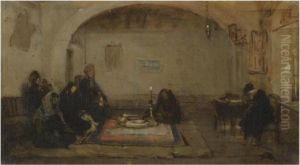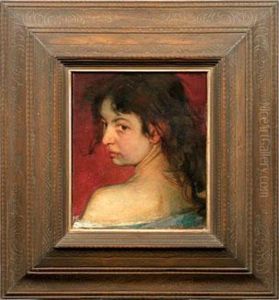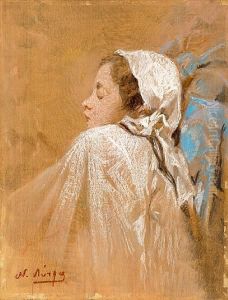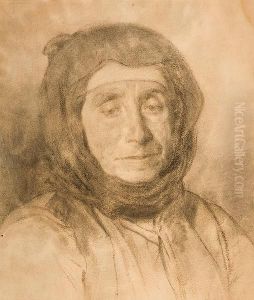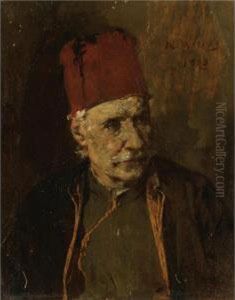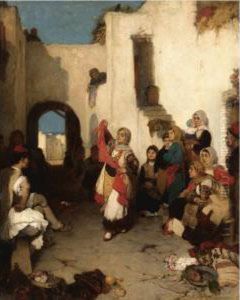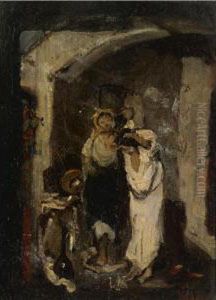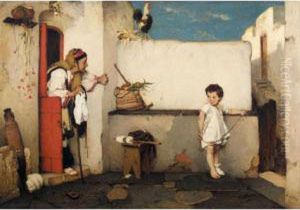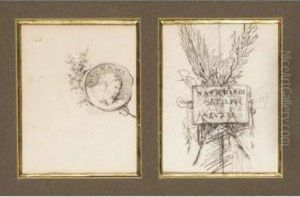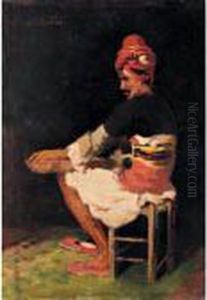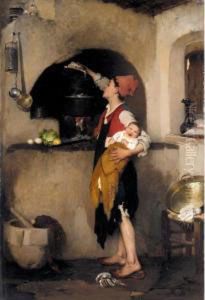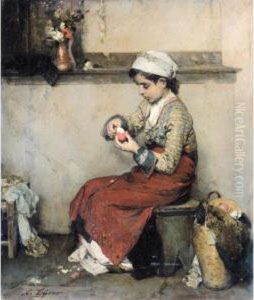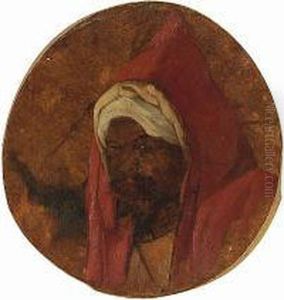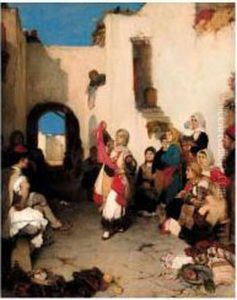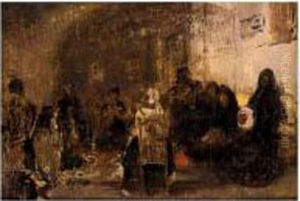Nikoforos Lytras Paintings
Nikiforos Lytras was a prominent Greek painter, widely recognized as one of the most important figures in 19th-century Greek art. Born on the island of Tinos in 1832, he grew up in an environment that was steeped in artistic tradition—Tinos was known for its marble artists and had a long history of artistic production. Lytras moved to Athens in 1850 to study at the Athens School of Fine Arts under the tutelage of the renowned Greek painter Nikiforos Kalligas.
Following his studies in Athens, Lytras received a scholarship in 1860 to study at the Royal Academy of Fine Arts in Munich, which was a major center for art at the time. In Munich, he was influenced by the work of the painter Karl von Piloty, whose teachings on history painting and realism would have a lasting impact on Lytras's style.
After completing his education in 1866, Lytras returned to Greece and began his career as a painter. He was primarily known for his genre scenes, portraiture, and historical paintings. His work reflects a mastery of the academic style of painting, yet he also embraced elements of realism, capturing the life of ordinary Greeks with sensitivity and detail.
Lytras became a professor at the Athens School of Fine Arts in 1873, a position he held until his death in 1904. Throughout his tenure, he taught and influenced a generation of Greek artists, contributing significantly to the development of modern Greek painting.
Some of Lytras's most notable works include 'Antigone in front of Dead Polynices', which is considered one of his masterpieces, and 'The Orphans', a poignant depiction of the human cost of the Greek War of Independence. His paintings are celebrated for their emotional depth and technical proficiency, and many are on display at the National Gallery of Greece in Athens.
Nikiforos Lytras passed away in Athens in 1904, leaving behind a legacy that solidified him as a central figure in the modernization of Greek art. His influence is still felt in the Greek art world, and his works continue to be studied and admired for their contribution to the cultural heritage of Greece.
